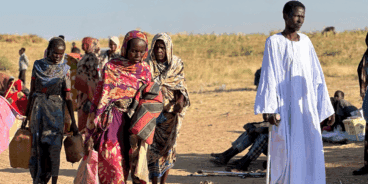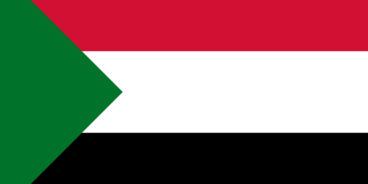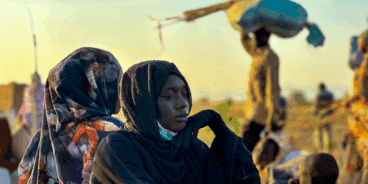
Letter to the UN Security Council on the Situation in South Kordofan
Dear Ambassador Araud,
Yesterday, state elections began in the critical Sudanese border state of Southern Kordofan, the final elections to be conducted under the 2005 Comprehensive Peace Agreement (CPA). Free, fair and peaceful elections and close attention to post-election processes will be essential for stability both in Southern Kordofan and across Sudan.
We write to you to express our concern that international actors engaged on Sudan have failed to adequately prioritize this process or its potential consequences, should the process reignite longstanding tensions and grievances in this region. Focused international engagement on the elections is crucial in reducing the risk of conflict. As a key state along the volatile North-South border, and adjacent to both Darfur and Abyei, Southern Kordofan is a lynchpin for stability throughout Sudan.
The elections are hotly contested, pitting the current governor and National Congress Party candidate Ahmed Haroun, who is wanted by the International Criminal Court (ICC) for war crimes and crimes against humanity in Darfur, against the current deputy governor and Sudan People’s Liberation Movement (SPLM) candidate, Abdel Aziz Elhilu. A third independent candidate, Telefon Kuku, has been detained by the SPLM, effectively preventing him from campaigning.
There are already signs of political violence. On April 13, armed attacks on villages in Southern Kordofan killed more than 29 people in Rashad locality, according to The Carter Center. Imagery from the Satellite Sentinel Project (www.satsentinel.org ) has captured this destruction, confirming over 350 razed structures. According to the United Nations Mission in Sudan (UNMIS), the predominantly Nuba victims were unarmed civilians and the violence prompted the displacement of a further 2,000 civilians.
We share the concerns expressed recently by the United Nations Security Council about this violence, and support their call for all parties to ‘avoid inflammatory rhetoric and to ensure peaceful and credible elections’. The risks to civilians are even more acute, given that Southern Kordofan remains one of the most heavily militarized states in Sudan, host to large contingents of the Sudanese Armed Forces and the Sudan People’s Liberation Army, as well as militia forces including the NCP-aligned Popular Defense Forces.
Despite the critical nature of these elections, only the Carter Center has provided international monitors on the ground in Southern Kordofan. The Center has warned about significant shortcomings in the voter registration process. Opposition parties are already planning protests in response to the perceived irregularities in the electoral process. A number of gubernatorial and legislative candidates have withdrawn citing the unfair electoral environment.
The risk of conflict will not end with the elections. Under the CPA, popular consultations assessing the extent to which the peace agreement has met the aspirations of the people, and addressing any shortcomings in their implementation, should take place in Southern Kordofan and Blue Nile. These consultations are the only opportunity for these states’ populations to express their views on the implementation of the CPA, and if perceived to be illegitimate could trigger instability. International monitoring of the popular consultation in Southern Kordofan following the elections could serve to bolster confidence in the process, drawing on lessons from the Carter Center’s current observation of the popular consultations in Blue Nile state.
For these reasons, we call on the international community to closely engage around the elections and upcoming popular consultations, to ensure that these result in an inclusive government and meaningful consultations, rather than increased polarization among the population. This includes:
-
-
- Calling on the parties to the CPA to ensure the election and post-election processes in Southern Kordofan are peaceful, free and fair, including through:
- Unfettered access for monitors and media to the counting and tabulation of results.
- Urging parties to desist from post-election disputes and violence.
- Calling on the parties to urgently reach a security agreement regarding the future of Southern SPLA troops in Southern Kordofan, and the future of Southerners currently serving in the Sudanese Armed Forces (SAF).
- Calling on the parties to ensure an inclusive, timely and credible popular consultation process in Southern Kordofan, in accordance with the recent UNSC presidential statement on Sudan (PRST/2011/8, 21 April 2011).
- International actors should provide increased support to the popular consultation process following the elections, including through international and domestic observer missions.
- Calling on the parties to the CPA to ensure the election and post-election processes in Southern Kordofan are peaceful, free and fair, including through:
-
Sincerely,
- Aegis Trust
- American Jewish World Service
- Enough Project
- Genocide Intervention / Save Darfur
- Global Centre for the Responsibility to Protect
- Human Rights Watch
- Humanity United
- International Refugee Rights Initiative
- Investors Against Genocide
- Refugees International
- Stop Genocide Now
- Waging Peace
Related Content


Sudan: civil society calls for a UN Human Rights Council special session on El Fasher
